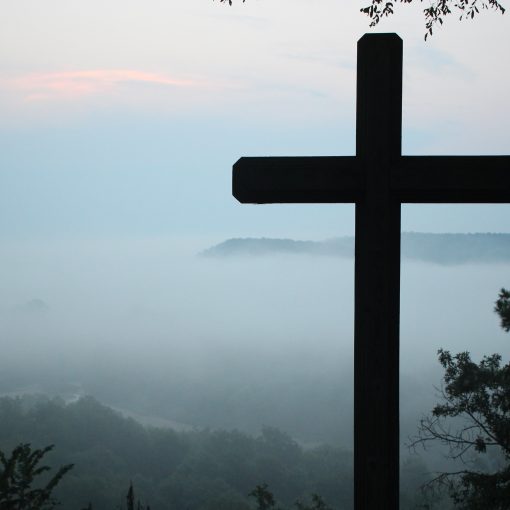This post has its roots in a recent blog post from Richard Beck in which he laments the worst effects of social media and makes the rather bold and controversial assertion that Christians shouldn’t be on social media. It’s a short post – I’d ask that you read it and come back if you haven’t already.
Addiction runs at least a little in my family. One of my great-grandfathers was an alcoholic and died before I got a chance to meet him. (His wife, my great-grandmother, lived to the age of 93 and was a wonderful presence in my young life.) Partially as a result of that, my family on the Martin side has been pretty cautious around alcohol. I didn’t get around to even trying alcohol until I was 23 and I quickly decided that I didn’t like the stuff at all. In fact, I’ve been pretty fortunate in the realm of substances in general – I just do not like feeling like I’m in an altered state. The warm feeling that a small amount of alcohol gives you? I hate that. Around 20 years ago, I got prescribed some prescription painkillers for a viral throat infection and took less than the recommended dose to start out with, knowing it was strong stuff. I was awake when the meds kicked in and remember thinking “y’know, compared to this loopy, disconnected feeling, pain isn’t so bad after all…”
But that doesn’t mean that I’m not susceptible to addictive or compulsive patterns. That feeling of having something else being in control of my behavior was one reason why I quit playing Magic: the Gathering about two years ago and now I’m pointing a similarly-critical eye at social media. You don’t have to be a stereotypical strung-out, jittery addict for something to have set up camp in your mind to an extent that bothers you. I don’t think I was addicted to Magic, per se, but it was definitely becoming an unhealthy sink for a lot of my time, money, and mental energy. I don’t like feeling like I’m being manipulated or controlled, which I’d guess is a pretty common sentiment. And getting away from Magic did good things for my state of mind. It felt a little weird and empty at first, but over time, the weirdness faded out and a feeling of being free faded in at about the same rate. I still miss certain things about playing Magic – but I have decided that a pretty clean break from playing the game is the best course of action for me personally.
For those that don’t know the brain science, Magic: the Gathering, particularly the collecting side, gets a lot of its juice from your brain’s reward centers, particularly dopamine. The thing is, it’s hardly unique in that regard. Magic is a lot like gambling, but those same reward center triggers are set off by (among many, many, many other things):
- Video games with randomized loot like most MMOs, Diablo, Torchlight or Borderlands
- Porn
- Drugs
- Backing stuff on Kickstarter
- Shopping
- Music that you like
- Food
- Social media
- Exercise
So the reward center thing isn’t the problem, and that doesn’t automatically make a
thing bad. Some of the things on the preceding list (drugs and porn) are, obviously, bad in and of
themselves. But most are fine or neutral when used in moderation.
The problems come in
when that dopamine response gets hijacked and you start hitting the proverbial button faster and
faster or for longer and longer periods of time. Have you ever sat there, holding a full bladder
or feeling hungry, thirsty, or tired while playing a video game you could pause and/or save and
walk away from at any time and that wasn’t even really fun any more? And then when
you do finally wrench yourself away you wonder what was going on? Ever start in on a bag of salty
snacks and realize you’ve eaten more than you intended and you’re not even tasting
them any more?
I have. That’s what I’m talking about here. This kind of problem takes a lot of forms, but when you start engaging in something mindlessly, it’s time to pull up. That can look like the video game spiral or mindless munching of junk food.
Or it can look like the appropriately-named “doom scrolling” on social media.
Before I start chasing that thread, though, I want to make what I consider to be a very important distinction between “social media” and “communication tools.” Social media sits inside the communication tools category, not the other way around. Radio, books, telephones, text messages, forums and message boards, chat servers like Discord, Slack, and Teams, VOIP calling utilities, and so on are also communications tools, but aren’t social media. Social media is things like Facebook, Twitter, and Instagram that are curated by algorithms and largely open to everyone. I’d throw Reddit in there too, with the caveat/acknowledgement that Reddit is kind of its own strange beast.
I initially really got involved with social media back in 2012 when we were starting Saving the Game – after all, when you have a podcast, you need to promote it! Prior to that, I had a Twitter account that I basically didn’t use for anything and mostly got my online interaction in via the Fear the Boot forums. When I finally joined Facebook with extreme reluctance, it first was kinda fun.I suddenly had access to a bunch of people I hadn’t spoken to in years, and over time, it became a way for me to stay in touch with my former coworkers from Barnes & Noble when I left that job and started my current one. But over the years, I noticed it taking a bigger and bigger chunk of my time. I joined a bunch of RPG groups on Facebook and that took over for my forum memberships to a large extent, but eventually, stuff from groups and general “wall” content started getting interleaved together and the urge to “doom scroll” ate a significant chunk of free time as I mindlessly scrolled through news feeds looking for … I’m not even sure what.
Facebook and Twitter in particular are designed to show you more of what you like, or more accurately what holds your attention, so over time, your feed will become more of an echo chamber, and it will also likely fill up with things that make you angry. This is further compounded by humanity’s natural inclination toward confirmation bias and the willingness of bad actors of various types (including state-sponsored ones) to literally just make stuff up purely for attention or to stoke the flames of chaos and you have a recipe for disaster. I’ve seen several lists of “if the seven deadly sins were websites” over the last couple of years. Some of them vary (I’ve seen more than one site that corresponds to Lust, for example) but on every list I’ve ever seen, Twitter has always been Wrath.
As mentioned in the quoted part of Beck’s blog post, this stoking of negative emotion is something that is commercially-beneficial to a lot of different companies. Satisfied, happy people usually don’t spend money very rapidly, but if you can convince them they have a problem, they’ll often be willing to put resources – time and money – towards a perceived solution to that problem. This works for everything from weight loss supplements and exercise equipment to political donations. Misery, depression, anxiety, anger, fear, outrage, and shock are all powerful commercial motivators. They create a sense of urgency in people to act now with their money, time, and resources. Sometimes, this is a very good thing! Outrage is the proper response to a genuine injustice, and an excellent motivator to fix said injustices. However, social media often stokes ever greater fury over ever more insignificant subject material. Case in point that ties back to the last blog post. The creator of the combat wheelchair rules for 5e has received multiple death threats over some optional, home-brewed rules available for free that allow for disabled characters in a fantasy RPG. That is nuts.
The social ills caused by social media are numerous and well-documented by many people much
smarter than me. But the personal prices are also non-trivial. Exposure to social media,
especially these days, has definitely had a corrosive effect on my mental health. (This
article provides a pretty decent summary.) And I already have high enough blood pressure due
to heredity that I’m on medication for it. I don’t need it elevated any more than it
already is. In addition, my attention span has never been particularly fantastic, but I’ve
definitely noticed it having worsened over the last decade or so. I’d like to get some of
that back.
Further complicating matters, a lot of us get our news from social media these
days – or at least, we get links to it. Combined with the echo chamber and the toxic
emotional stew of fury, outrage, and constant hot takes, this means that radicalization and
polarization are much more rapid and severe than they used to be prior to social media’s
rise. And in an effort to compete with one another, a lot of news sites have staked out an
ideological position and write the most attention-getting headlines and articles they can, often
bending the facts to fit the story in the process. And the reactions feed the flames. People with
varying levels of actual justification deploy ever more barbed and incendiary invective at their
political rivals and those on their own ostensible side (and in the world of social media, there
can only be two sides: “us” and “them”) that they don’t see as
“pure enough.”
In spite of all of this, I’m still inclined to take a little bit of a softer stance than Beck does. Social media certainly does have its uses and purposes. They are powerful platforms to get the word out about creative projects and they allow some people who are very isolated at the best of times to still stay connected to other people during the pandemic.
Practical Steps
So what to do about the worst aspects? As often is the case in these posts, I don’t have
some wise, one-size-fits-all (or even most) solution that can be applied by everybody to magically
fix the crazy making of social media. But I can tell you what I’m personally planning to try
after an afternoon of googling.
I went ahead and watched The Social Dilemma on Netflix. If
you’ve got 90 minutes to spend, it’s a good use of your time. It is very sobering and
somewhat unnerving viewing.
First, as I kind of alluded to in the title of this blog post, the impulse is there to pull the plug and have that be that, particularly after watching the documentary, but I’m not going to be deleting my accounts and blocking social media sites via DNS filtering or something. I still need to be able to promote the podcast and there are certain people I can only contact through Facebook (which is also useful for planning get-togethers whenever the pandemic backs off enough to make that possible.)
What I am doing is trying to replace as much of the functionality of social media as I can with other, healthier options. Some may also find the advice in this Lifehacker article to be useful – I’ll probably be doing some of this myself in the coming weeks and months.
News: Some of you may still be lamenting the loss of Google Reader back in the
day. It was the best RSS reader of its time, and it served as the model for The Old Reader, which I still use every day. I’ve
subscribed to the Associated Press and Reuters top stories feeds, and also threw in Christianity
Today and The Chicago Tribune (because I live about two hours away from Chicago). RSS feeds in
general are a wonderful way to keep up with things that release regularly like new stories and
webcomics. If you’ve never used one, give it a try. Also, because trying to get RSS feeds
for the Associated Press and Reuters is nightmarish in 2020, here are the feed URLs I
found so you don’t have to subject yourself to the hair-pulling I just did:
Reuters:
https://news.google.com/rss/search?q=when:24h+allinurl:reuters.com&ceid=US:en&hl=en-US&gl=US
Associated Press: http://rsshub.app/apnews/topics/apf-topnews
Speaking of that, how did I decide on those specific sources? I used this site. Ad Fontes Media is out to combat polarization and has taken to analyzing news sources pretty rigorously for bias (details are on their site). Reuters and the AP are the two highest-placed sources for reliability and both the Chicago Tribune and Christianity Today sit in the green box at the top, albeit on opposite sides of the central dividing line and in the overlap with the yellow box. I’m a Christian and I live near Chicago. That seems just about perfect for me. You’ll also notice that if you look down the chart, you’ll see that a lot of the news sources you see referenced on social media are more polarized and less fact-oriented. If you keep looking further down, you’ll see the cable news of some of the same companies. Whenever possible, read your news instead of watching it.
As you put together your own feed (if you decide to) you may find RSSHub to be useful – I sure did.
Connection: Here, I’m doing basically nothing except resolving to check social media less. I have Discord and Slack communities to stay in contact with my close friends, and I can check in on my acquaintances on Facebook from time to time as needed. I still have my email addresses and really close friends have my phone number and can text me. That really seems to be just about all I truly need. I would urge you, if you decide to pull back from social media, to find some online communities that you truly enjoy being part of. For me, the big ones are the Discord servers of the podcast (of course!), my two gaming groups, and Genuine Fantasy Press, the Min/Max Slack, and the Gamers With Jobs forum.
I’ve got some other steps I’m planning to take along with this for my own personal benefit (more reading books, etc.) but while those are connected to this, it’s kind of in a tangential way.
Conclusion
I do think it’s worth taking a step back from social media if you’re deep in those
weeds. While I can’t quite take Richard Beck’s hard line stance, I do think he is onto
something – and a little distance from the froth and churn of Facebook and Twitter sounds
like a welcome breath of fresh air.
Image by Hucklebarry from Pixabay




